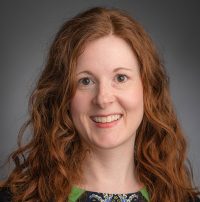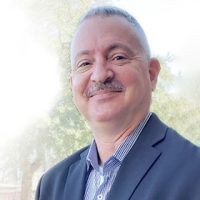Expert Panel:

Dr. William Wierda, President & CEO, CLL Global Research Foundation

Dr. Erin Parry, Investigator, Hematologic Neoplasia at Dana-Farber Cancer Institute

Jeff Folloder, Moderator and CLL patient advocate
Our recent CLL Global Research Foundation virtual town hall featured CLL Global President, Dr. William Wierda, and Dr. Erin Parry, an Investigator of Hematologic Neoplasia at Dana-Farber Cancer Institute. CLL patient advocate Jeff Folloder moderated the event. Watch the full webinar.
Transcript
Jeff Folloder:
We’ve talked about “watch and wait” and people considering frontline treatment, and we’ve talked about when things go very wrong with Richter’s. There is a middle ground, the relapsed and refractory patients. Some of them never need treatment again. Some of them do need treatment again. Some of them exhaust treatment options. So, after exhausting BTK and BCL-2 drugs, what’s the next best treatment going in clinical trials? They want to specifically exclude CAR T-cell therapy from your answer.
Dr. Erin Parry:
Of course, I’ll try to highlight a few. I think one of the things that’s emerging from some of the studies that have been done too that if someone has been treated with maybe time-limited therapy, there may be opportunities where the therapy may work again.
So, there are actually studies that are looking at people that have been treated with BCL-2 in particular and time-limited therapies and whether that may be an option that may be revisited, especially if the CLL has a nice long remission that comes back later. So, those studies are ongoing.
Then I think some of the new things you’ve heard about in some of those studies that were highlighted too, I think, were interested in this class of degraders. We know that this BTK protein and inhibiting it has been very helpful for our patients with these BTK inhibitor drugs. So, it’s figuring out other ways, even if resistance occurs, if that pathway can still be targeted. So, I think that’s another class of drugs that we’re very excited about.
I think another class of drugs that is being looked at that we’re excited about that you also heard about is thinking of our immune-based therapies. So, there’s a new class of drugs called bispecific antibodies that help grab onto the abnormal B cells but also grab onto your immune system killer cells or your T cells. These we’ve already seen approved in other types of lymphoma where they’re showing really great efficacy.
There’s been some exciting data presented at some of our recent conferences looking at those as well. So, those are a couple that I’m paying attention to, and I’m sure Dr. Wierda has some to add as well.
Jeff Folloder:
This is your opportunity.
Dr. William Wierda:
No, I would agree. Those are all the ones that are on our radar screen. There are also some other molecules that are being targeted with small molecule inhibitors. BCL-XL, etcetera, those are in development. There’s another one that’s targeting protein kinase C-beta. There are several agents that are in development, and we’re all excited and interested to see results. There’s probably more activity and new drug development in CLL than we have patients.
Now that’s a good thing for our patients, because they’re doing very well with our current trials and our current treatments with combined targeted therapy. It does make it a little bit challenging, because we have a lot of opportunities and clinical trials that we’re interested in evaluating new drugs and a more limited number of patients to participate in those trials.

